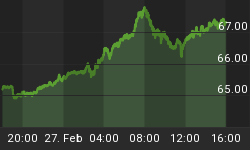The past two days have presented us with a clear picture both of the stresses facing the British economy and the thinking of the Bank of England's Monetary Policy Committee (MPC). Today saw the release of the minutes of the September 3-4 MPC meeting. Eight of the members opted to keep the repo rate at 5.0%, one argued for a 50bp cut, and no-one made the case for a rate hike. The members concluded that there had been both upside and downside developments over the previous month. Interestingly, the members also emphasized that the Council would continue to make its judgment each month on the basis of changing evidence.
More details about official thinking were forthcoming in yesterday's open letter from BoE Governor King to Finance Minister Darling, the second so far this year. The remit of the MPC calls for the Governor to write an explanatory letter whenever headline CPI moves more than one percentage point above the 2.0% target, and to continue to do so at three-month intervals if necessary. Yesterday's letter was triggered by the news that CPI shot up to a sixteen-year high of 4.7% in August.
Chart 1
Governor King reiterated the MPC's view that the higher inflation triggered by sharp global increases in energy and food prices must not lead to higher inflation expectations becoming embedded. Thus "rising commodity, energy and import prices...cannot, by themselves, generate sustained inflation in the United Kingdom unless we allow other prices and costs, including pay, to rise at a faster rate." There is evidence from surveys of a near-term increase in inflation expectations, and the peak in CPI inflation is now expected to be higher than was the case three months ago. Therefore, "the Committee has become firmer in its belief that a period of muted economic growth is necessary to dampen pressures on prices and wages and return inflation to the target in the medium term." [emphasis added]
In addition to higher global commodity prices, King also pointed to the wider effect of the recent depreciation of sterling, which pushed up overall import price inflation to "around 12%" in Q2, its fastest pace in over twenty years. Sterling has depreciated even faster since the Governor's last open letter - hence the conclusion that the expected peak in CPI later this year "will be significantly higher than anticipated in June." Inflation is now "likely to remain markedly above the target until well into 2009, particularly if the recent depreciation of sterling is sustained."
All of which suggests that the MPC is in no hurry to start slashing interest rates. In the September policy meeting minutes, the members noted that a rate cut risked sending a signal that the Committee was more focused on economic growth than on inflation. However, Governor King also noted yesterday that "activity in the economy has slowed sharply" and that the outlook is "noticeably weaker" than in June, suggesting some dampening of pressures on prices and wages is likely.
The past two days' data releases certainly add to the picture of an economy that is slowing sharply. The July-August labor reports saw significant rises in both measures of unemployment (claimant count and ILO). The ILO-definition unemployment rate rose to 5.5% in May-July, the highest since 1999. More disconcerting was the increase in the claimant count measure of unemployed, with the count in August jumping by 32,500 on the month - the sharpest rise since December 1992, and the seventh-consecutive month of ever-larger increases.
Chart 2
Earnings growth, on the other hand, remained relatively steady, with the three-month moving average rising 3.7% on the year in July, below the headline rate of inflation.
Chart 3
Finally, the Confederation of British Industry reported today that the monthly industrial trends total order books balance fell from -13 in August to -26 this month, the lowest reading since January 2006. The output expectations balance fell to a seven-year low of -16 (-13 in August). Most disconcerting, given sterling's recent slide, the export orders balance dropped to -25 (-9 in August).
In sum, while the MPC is minded to keep rates on hold for now, the members, and the Governor, have been at pains to emphasize that they will "examine the latest developments, including those in financial markets, to assess how the balance of risks is evolving at its next and subsequent meetings." With unemployment rising sharply, export orders sliding, and the ongoing woes in the financial sector (particularly worrisome for the UK given London's prominence in the global financial system), our best guess is that the odds now favor a rate cut in Q4 2008 - but those odds could change again by tomorrow.















